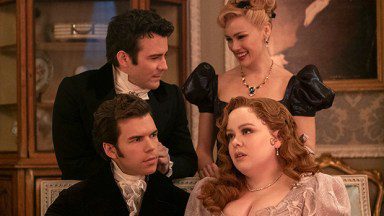Lars von Trier’s obnoxious abandoned Richard Wagner opera project
 Posted On
Posted On
(Credits: Far Out / Alamy)
It’s fair to say that throughout his career, Lars von Trier has pushed many boundaries in both his professional work as a filmmaker and his personal, controversial opinions. Ever since arriving on the European scene in 1984 with The Element of Crime, the Danish director has established himself as a provocateur and the enfant terrible of Scandinavian cinema.
There’s always been a huge air of ambition within von Trier that has naturally led to some of the most memorable pieces of modern cinema. His avant-garde manifesto Dogme 95, created with fellow Dane Thomas Vinterberg, sought to return the medium of filmmaking to its most essential elements and deliver the admittedly brilliant, if controversial, The Idiots.
Then there are von Trier’s more famous works of cinema like Dogville, Antichrist, Melancholia and Nymphomaniac, each of which features notable Hollywood stars, showing the kind of reputation for cinematic brilliance von Trier carved out for himself. However, there’s no denying that the great Dane has stirred up controversy wherever he has been, whether in his unflinching films or admittedly idiotic press tour remarks.
Of course, having such ambition can sometimes lead to failure and not every project that von Trier has taken on has ended up seeing the light of day. Take, for instance, his abandoned effort to bring German classical music composer Richard Wagner’s The Ring of the Nibelung opera cycle to the 2006 Bayreuth music festival.
Von Trier had once written of Wagner, “I have always had affection for Wagner: mostly for his music and the monumental aspects of his life and work.” Even though he had no experience in directing an opera, he felt that his sheer “willpower and love” alone could lead to a successful production.
Indeed, von Trier had used part of Wagner’s Trisan & Isolde during the intro to Melancholia, proving the deep love he has for the German composer. However, two years before von Trier’s Ring was set to take place at Bayreuth, he pulled out of the festival, admitting that he had to “get to terms with the dawning truth that a realisation was beyond his reach”.
Directing Wagner’s Ring cycle at Bayreuth, the theatre built by Wagner himself, was one hell of a task, considered one of the crowning achievements in opera, so for the operatic experientially void von Trier to take on the job shows the kind of opinion he has of himself. Sadly, this opinion fell well short of the mark.
In an interview with Film Comment, von Trier spoke of his decision to take on and then abandon his Wagner project. “My ambition was to do the Wagner that would destroy all other interpretations,” the director noted. “I worked on that for two whole years. But I realised that technically it would be so difficult, there was no way to realise my plans on stage.”
Von Trier went on to say that Wagner’s operas themselves were not “too big” for him to take on, but the way that he wanted to “stage them” would prevent them from ever arriving in their desired form. “If you know that you could only succeed with 30 per cent of what you set out to do, that’s not good enough,” he added. “So I decided, unwillingly, to end my work on Wagner.”
Evidently, von Trier felt that he could take on one of the biggest jobs in opera despite having no experience with the medium. Thankfully, the Danish director realised that he would not be able to bring his vision of Wagner to life, which might have just been for the best concerning the opera community, especially considering the kind of attention the controversial filmmaker likes to bring to himself.
[embedded content]
Related Topics


